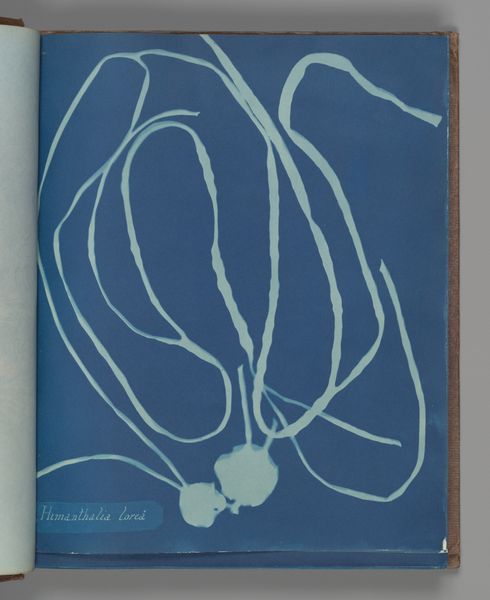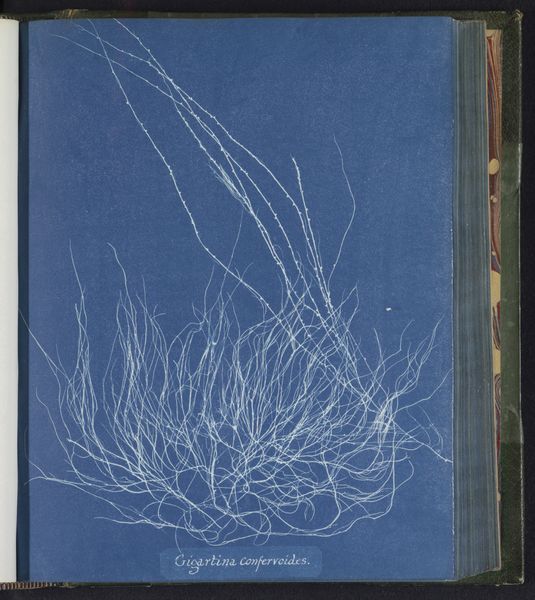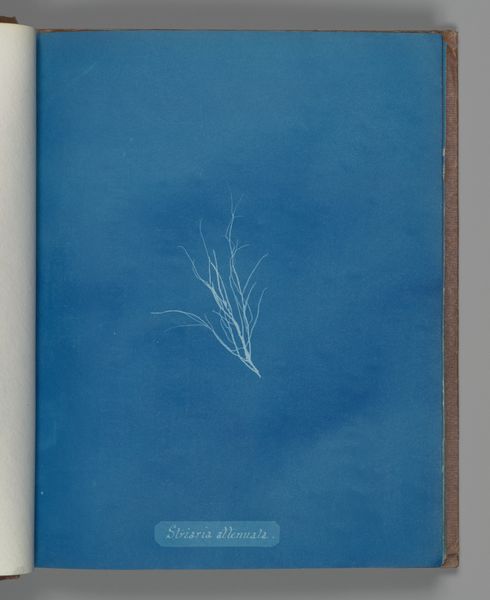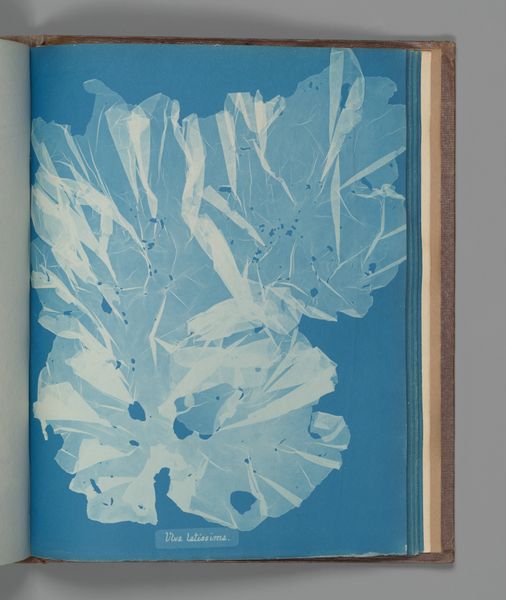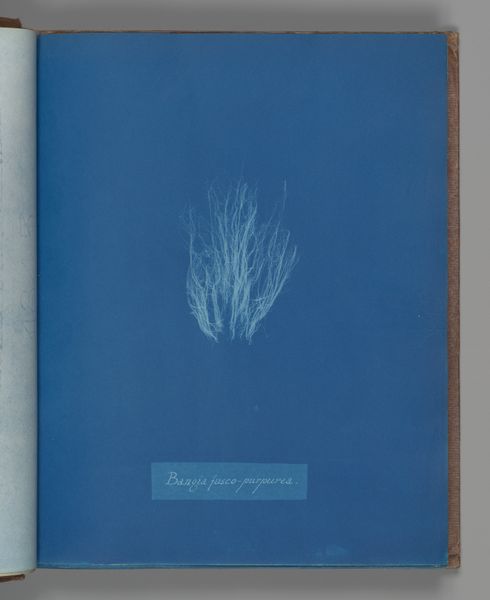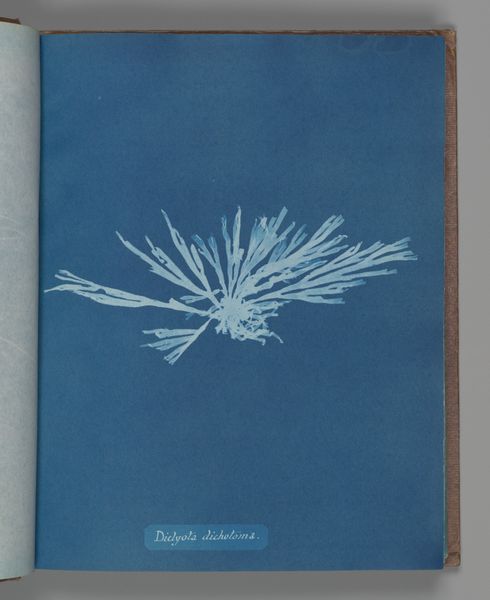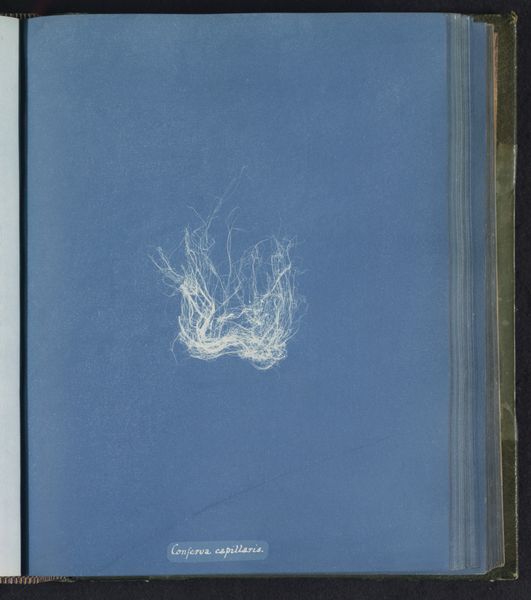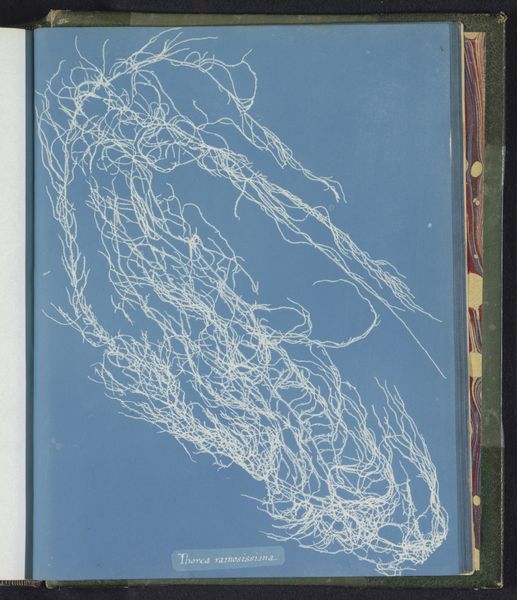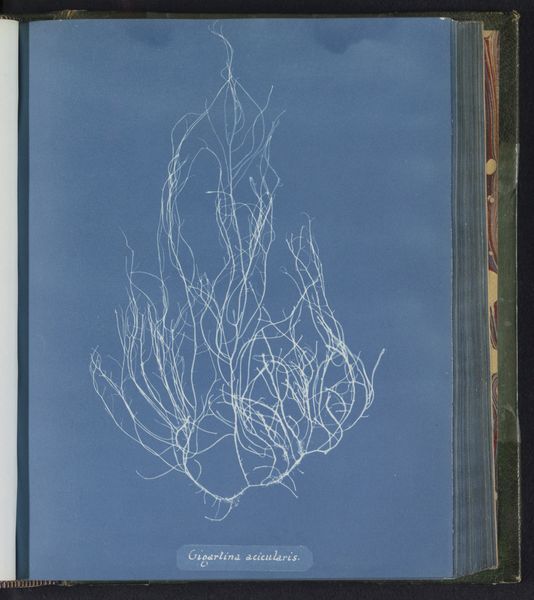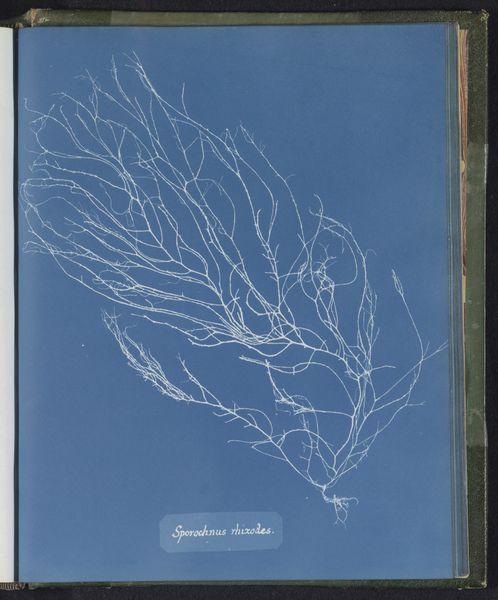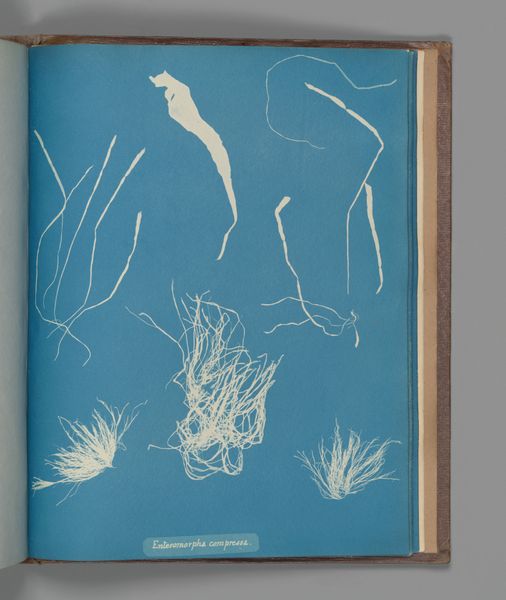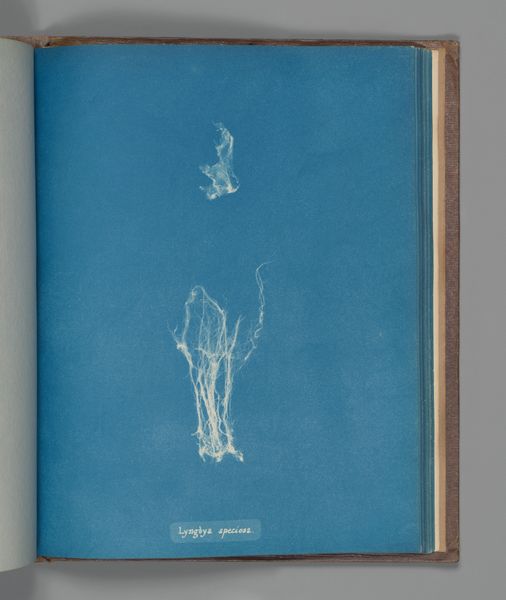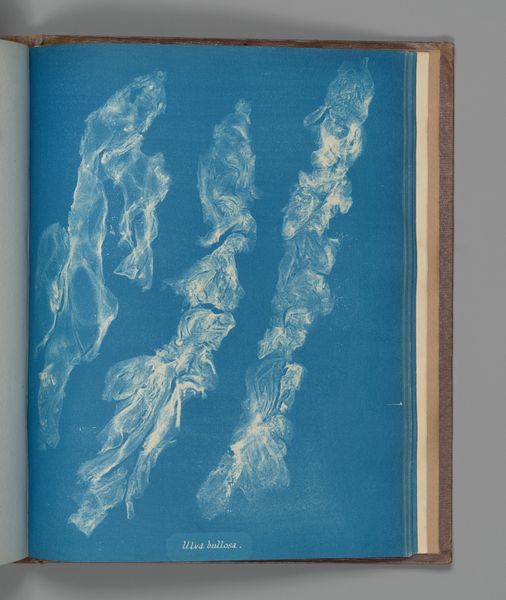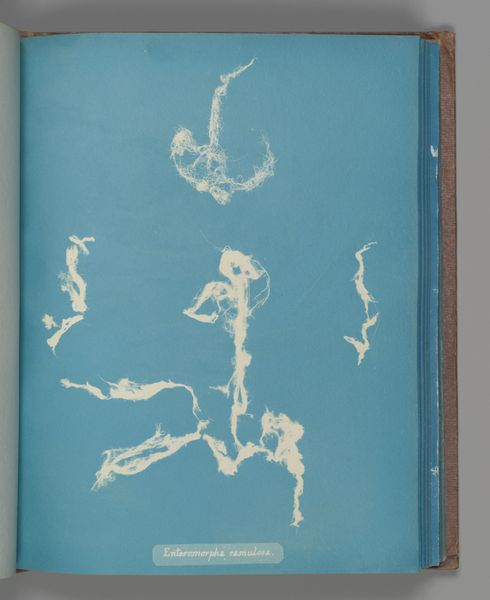
print, cyanotype, photography, collotype
# print
#
cyanotype
#
photography
#
collotype
#
line
Dimensions: Image: 25.3 x 20 cm (9 15/16 x 7 7/8 in.)
Copyright: Public Domain
This is a cyanotype, a photographic print made by Anna Atkins in England sometime in the mid-19th century. It depicts "Chorda filum," a type of seaweed. Atkins wasn't just an artist; she was a botanist, and one with connections to the very latest scientific developments. Photography was brand new, and the cyanotype process allowed her to create detailed, accurate records of plant specimens. Think about the social structures of the time. As a woman, Atkins was largely excluded from formal scientific institutions. But with her wealth and status, she could participate through more informal channels, and even produce work of real scientific value. The image itself is striking in its simplicity. The plant is laid directly on the sensitized paper, creating a ghostly white silhouette against a deep blue ground. What was the public role of this art? It was a scientific record, but it was also a beautiful object, and it challenges our assumptions about the relationship between art and science. To understand this piece fully, we can draw on resources from the history of science, women’s studies, and of course, the history of photography.
Comments
No comments
Be the first to comment and join the conversation on the ultimate creative platform.
